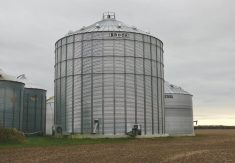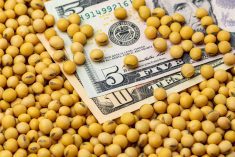Glacier Farm Media | MarketsFarm — The path canola is to take as January turns to February has been marked by “extreme uncertainties,” explained broker Ken Ball of Ventum Financial in Winnipeg.
Ball noted that for much of January so far, canola lagged behind Chicago soy by upwards to C$100 per tonne. That began to shift during the week of Jan. 20, as the trader pointed out that soyoil was being sold while canola was being bought.
“Eventually that will reverse as the spreaders will push it so far,” Ball commented.
Read Also

U.S. grains: Soybeans continue gains on Trump’s China comments
Chicago | Reuters – Chicago Board of Trade soybeans continued a three-day rally on Friday, fuelled by President Donald Trump’s…
On the negative side of the path, canola is faced with it being excluded from recent changes the United States government made to its biofuel tax credit plan. Ball fears that canola may not qualify and suggested soyoil “is probably facing a much reduced tax credit.”
The trader said he believes the U.S. biofuel industry is in jeopardy.
“I don’t know what they’re going to use. They’re blocking used cooking oil and bean oil gets only a 33-cent tax credit and canola gets nothing,” Ball explained.
“I suspect the reason behind this is they’re trying to put the (U.S.) biofuel industry out of business,” he added, alleging the Trump administration being more concerned with promoting fossil fuels.
Then in Canada, Ball said, canola is very likely faced with shortage as export sales and domestic use remained on pace to outstrip available supplies.
The latest data from the Canadian Grain Commission placed year-to-date canola exports at 4.93 million tonnes after 23 weeks into the 2024/25 marketing year, putting them 2.27 million tonnes ahead of the same time last year. Also, domestic use of 5.29 million tonnes was up 567,700 tonnes from a year ago.
If those paces were to hold, exports would hit 11.14 million tonnes with domestic use at 11.96 million, while on Jan. 20 Agriculture and Agri-Food Canada placed total supplies for 2024/25 at 20.69 million tonnes and ending stocks at 1.25 million.
On top of that, AAFC issued its preliminary estimates for 2025/26, with canola production lowered to 17.50 million tonnes and ending stocks dropping to 950,000 tonnes.
With the two extremes, Ball said it’s very hard to get a firm bead on the markets especially with the looming threat of tariffs.
“It’s very hard to tell what’s driving the market on any given day,” he stated. “It’s a mess.”














